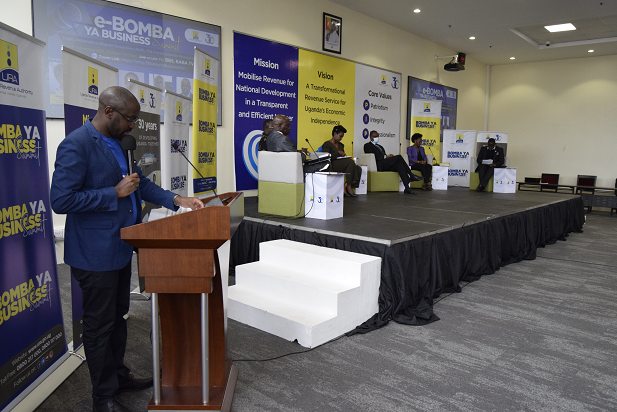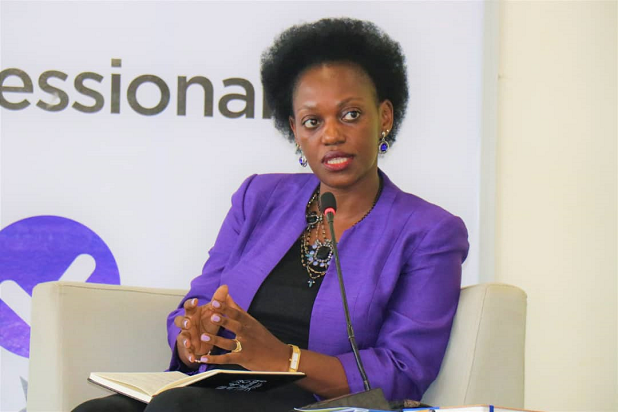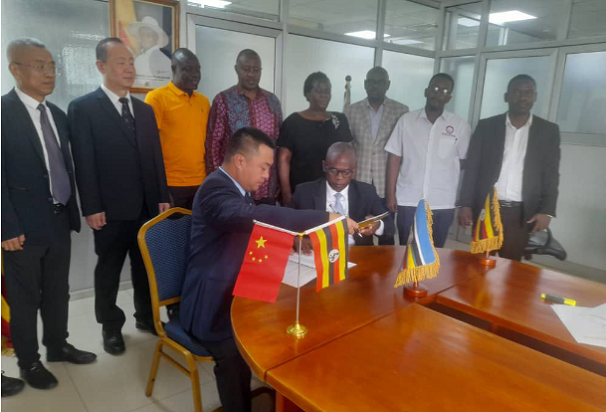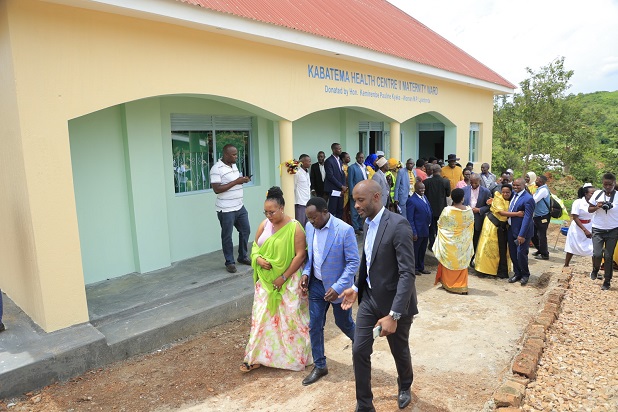Patience T. Rubagumya, Commissioner Legal and Board Affairs at URA
Taxpayers, tax advisers and lawyers have pledged to give support to Uganda Revenue Authority’s Alternative Dispute Resolution (ADR) Mechanism.
On Friday, Patience T. Rubagumya (Commissioner Legal and Board Affairs, URA), Godfrey Akena (Partner Abmak Associates), Moses Kaggwa (Director, Economic Affairs, Ministry of Finance), Pheona Nabasa (President, Uganda Law Society) and Joseph Okuja (Director, Tax and Regulatory Services – Libra Associates and Consultants) formed a panel on the 4th day of URA’s e-Bomba Ya Business Summit 2021 at the Authority’s headquarters in Kampala to breakdown the Alternative Dispute Resolution (ADR), a mechanism the taxman is confident is the way to go.
According to Rubagumya, in the last Financial Year, URA recovered Shs 365 billion through ADR.
As a result, the mechanism is being taken seriously.
“ADR within the URA is being taken very seriously. And actually in most of the cases that we have had, they have been chaired by the Commissioner General himself. So that is how we are taking this matter seriously. We also don’t want to waste taxpayers’ time to come for a discussion and still the officers are not able to resolve the dispute. That is what we are also trying to avoid. That we have to go beyond what the law provides. So, we have gone from reading what the provisions are in the law to try to understand (what the law was meant to achieve) but it’s all in the spirit of let’s resolve these disputes and it’s at the highest leadership within the institution that we need to have these cases closed. CG (Commissioner General) is very much interested in this imitative and its one of his flagship ideas that he brought on board so he gives all the time and attention to all these cases and to me, it is confidence to our tax payers that when you come and approach us for this, you won’t be wasting your time,” Rubagumya said.
With ADR, Rubagumya says, “we are able to have discussions, taxpayers that are able to trust the system that when the assessment is raised, they are happy with that. We have had a number of tax agents and lawyers that believe in this system (ADR). They have approached us, had discussions and that is the way we have actually been able to resolve these cases. Some are resolved before we go to the Tax Appeals Tribunal but we thank the tax agents, lawyers and accountants that have also seen that ADR indeed has benefits. For me, the biggest benefit is that we are able to have amicable discussions and be able to resolve the matters in a faster manner. With the court processes of course we still have disputes but remember within the court systems you have many appeals processes. So, what ADR offers is that you have a discussion and we are able to conclude that matters and both the taxpayer and the URA are resolved and agreed upon so you won’t have the many layers of these cases going through the appeal levels.”
Rubagumya adds that related to ADR, there is where URA requests the taxpayers to make voluntary disclosures.
Within the law, she explains, “we have provisions where if you come and voluntarily tell the URA that you know, this is where you went wrong and you are able to disclose and pay the principles, then you don’t suffer the penalties and the interests. That is one big advantage as well that comes through when you come upfront and tell the URA that this is where you have gone wrong. So, we also encourage our taxpayers to use that avenue to come up and voluntarily disclose. The forms are online and then you are able to pay.”
For us, she adds, “the key is voluntary compliance. We don’t like issuing agent notices, we don’t like closing down premises (because that’s not our business). We are looking at collecting revenue. So the more we have taxpayers complying voluntarily the better for the URA and that is why we are also stepping up our efforts in educating taxpayers. Ultimately, we will have a system where a taxpayer will voluntarily file their returns and what they have filed, even when you do the audit, we will probably not find so much of a dispute that will work through so to us the key is voluntary compliance. This is what is going to drive Uganda, this is what is going to drive us to be able to raise sufficient revenues that will take this country to the higher level that we want.”
Tax agents – Okuja and Akena agree that ADR is the way to go and pledged total support.
As a representative of the taxpayers, Akena said, “We support ADR”.
“ADR is the way to go. If you can have a mechanism that can have a taxpayer walk into URA, it’s a welcome development and as a tax agent, we are going to support it,” Okuja said.
Nabasa believes in ADR. To this, she pledged to offer free training to the URA team.
She, however, asked the URA to “get the people to trust the system. Let’s urge people to come. Let’s do amnesty.”

Kaggwa on the other hand says the Ministry of Finance, Planning and Economic Development is supporting ADR.
Kaggwa says: “We are supporting URA to ensure that most of their systems are automated. Cos when you have automated systems, then you avoid human contact. Most of the things that will come out of the system of course will be correct. We are supporting URA on the digital tax stamps. We are providing money to URA for recruitment of staff. Recently, senior management staff were recruited. Before that, there were about 250 staff which were recruited at the lower level. More are going to be recruited so that URA can be effective. Generally, we work in very close contact with URA to try and understand what their problems are in regards to collections. We sit down with them and we set targets, it’s not a Ministry of Finance target, it’s a target that we sit down and arrive at. We give them as much money as they need. We can’t give them all they need because our purse is not so deep but we try to facilitate them. There are no budget cuts where URA is concerned. Other institutions have suffered budget cuts of 40% across the board but URA has not suffered.”
On the ADR, Kaggwa said, “we are looking at more of sensitization of taxpayers because sometimes when taxpayers don’t understand this then they might not act properly. So, we are working with URA on a tax education program that will really go out to the taxpayers and tell them about the tax dispute mechanism.”





